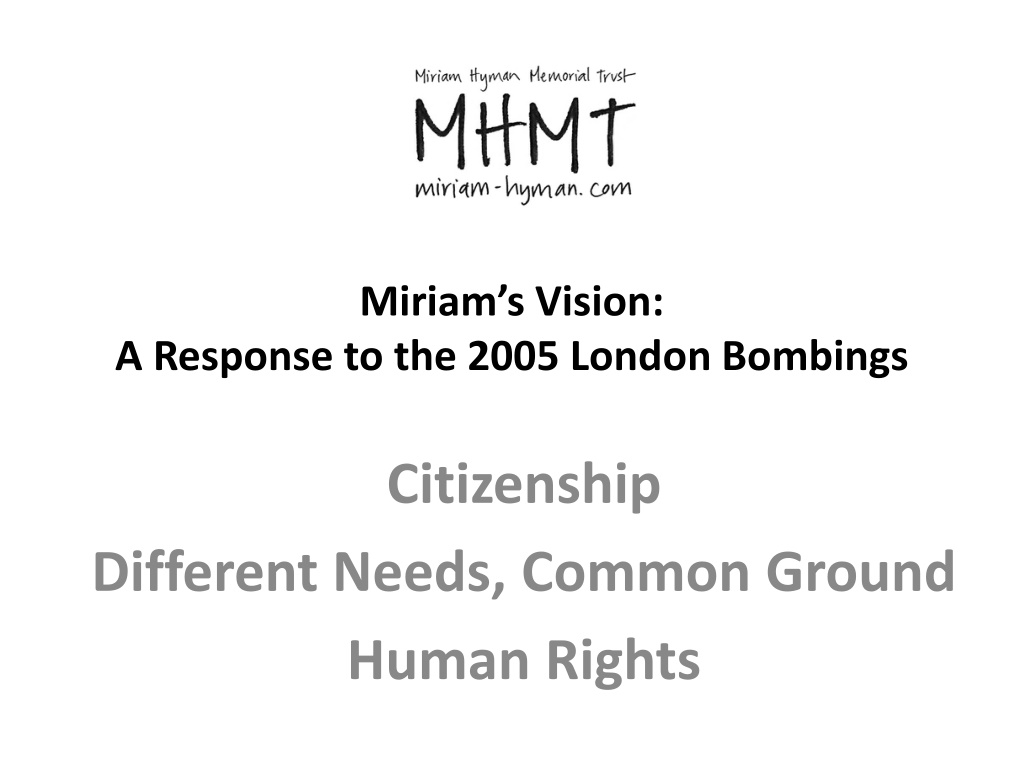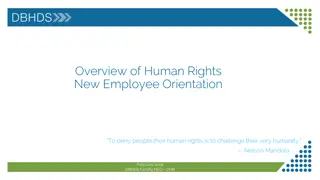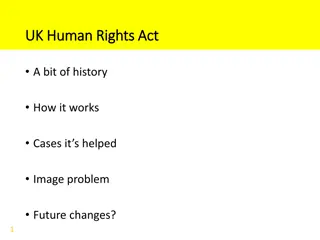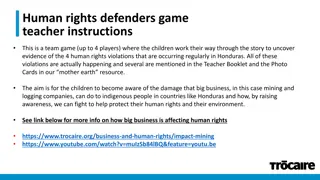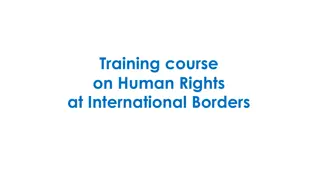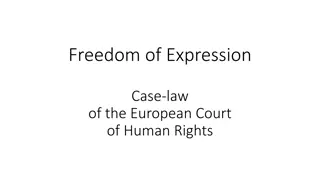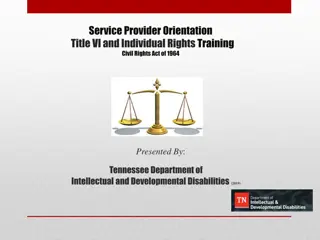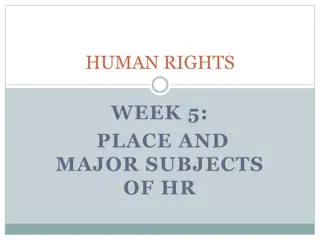Understanding Human Rights: Lessons from Miriam's Vision
Explore the aftermath of the 2005 London bombings through different perspectives, learn about human rights, and understand the importance of respecting one another's rights. Dive into a thought-provoking journey of self-reflection and societal values.
Download Presentation

Please find below an Image/Link to download the presentation.
The content on the website is provided AS IS for your information and personal use only. It may not be sold, licensed, or shared on other websites without obtaining consent from the author. Download presentation by click this link. If you encounter any issues during the download, it is possible that the publisher has removed the file from their server.
E N D
Presentation Transcript
Miriams Vision: A Response to the 2005 London Bombings Citizenship Different Needs, Common Ground Human Rights
It is 07 August 2005, one month after the 2005 London bombings AUGUST 2005 AUGUST 2005 07 You are: No. 1: A police officer No. 2: A Londoner of Asian appearance No. 3: The Mayor of London No. 4: A family member of somebody killed on 7/7 No. 5: A commuter who travels on the London Underground to work every day How do you feel? What are your hopes and fears for the future?
They are my rights! Have you heard the word rights ? In groups, come up with your own definition. The words below might help you.
Rights are basic freedoms that we all have. In the UK, our rights are written down in the Human Rights Act. Everybody including the government must respect the rights in this law.
Read the Human Rights Act. 1. In yellow, highlight all the rights which are about crime and punishment. 2. In green, highlight all the rights which are about politics and making change. 3. Which rights were not respected on 7/7? Thinking question: Can you think of any situations when our rights should be limited?
Your rights cannot be taken away. But sometimes your rights may be limited to protect the rights of others. There are only four rights which can never be limited (they are absolute). Can you guess which ones they are?
Answer: Articles 2, 3, 4 and 7 are absolute rights. All the rest may be limited in some circumstances. If there is a disagreement about human rights, judges must decide what should happen.
Today YOU BE THE JUDGE!
You will read seven cases about human rights. For each case, think about: i) Which rights are affected? ii) What should happen?
Case 1 Andy is a student. One day he is watching a football match at home. He posts a racist comment on Twitter about one of the players. Should anything happen to Andy?
Case 2 Alice is a prisoner. She is serving three years in prison for burglary. There is an election this year, and Alice wants to vote. But prisoners are not allowed to vote. Should Alice be allowed to vote?
Case 3 Michael runs a hotel. He is a Christian and believes that homosexuality is wrong. One day, Steve and Vikram come to his hotel. They are a gay couple. Michael says that they cannot share a room and does not let them stay in his hotel. Steve and Vikram say that this is not fair. Should Michael be forced to let Steve and Vikram stay at his hotel?
Case 4 Ian hates the government. He has been writing lots of angry things on the internet. The police have been watching Ian for a year. They think he is going to plant a bomb to kill lots of people. But they don t have strong enough evidence to put him on trial. Should they be allowed to lock Ian up without giving him a trial? For how long?
Case 5 RAF Fairford is an Royal Air Force base. When there is a war, planes take off from here and go to drop bombs on other countries. One day, a group of people are travelling towards the base to protest against a war. On the way their coach is stopped by police. They are prevented from reaching the base and forced to turn round. The police say that some of the people were planning to break into the base. Should the people be allowed to protest at the air base?
Case 6 David is a secret agent. He has captured a man who was trying to start a terrorist attack. David thinks the man has important information about other terrorists, but the man is refusing to speak. David wants to use torture to force him to speak. Should David be allowed to use torture?
Case 7 Ellen is a journalist. She has gone to a protest to film what is happening. Police stop her and search her bags and clothing. They say that London is at risk from terrorists so they can stop and search anyone they want at any time. It is not only people like Ellen who get searched. In fact, the police are five times more likely to search black and Asian people than white people. Should the police be allowed to stop and search anyone they want?
There are no rights without responsibilities. What do you think this means? Do you agree?
Think back to your character from the start of the lesson. You are: No. 1: A police officer No. 2: A Londoner of Asian appearance No. 3: The Mayor of London No. 4: A family member of somebody killed on 7/7 No. 5: A commuter who travels on the London Underground to work every day How might human rights affect you?
